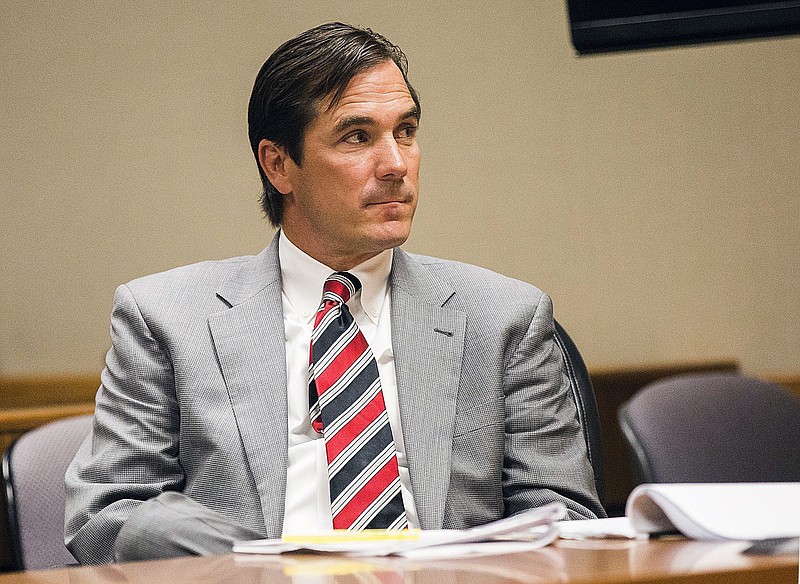FLINT, Mich. (AP) - A former Michigan health official testified Thursday that he started asking questions about bacteria in Flint's water supply a year before the state publicly acknowledged an outbreak of Legionnaires' disease.
Tim Becker, who was deputy director at the Department of Health and Human Services, acknowledged that the agency could have issued a public warning in January 2015. But it was 12 more months before the department and Gov. Rick Snyder said something publicly.
Becker was the first witness at a key court hearing involving his former boss, department director Nick Lyon, who is charged with involuntary manslaughter in the death of an 85-year-old man and misconduct in office.
A judge must decide whether there's enough evidence to send him to trial. Lyon's attorneys call the charges "baseless."
The attorney general's office says a timely announcement about a Legionnaires' outbreak in the Flint area in 2014-15 might have saved Robert Skidmore. He died of congestive heart failure, six months after he was treated for Legionnaires'.
Some experts have blamed the outbreak on Flint's use of the Flint River as water source. At the same time, a failure to treat the water for corrosion caused a different disaster: Lead leached from old plumbing and contaminated the city's water system.
Nearly 100 Legionnaires' cases, including 12 deaths, were detected in 2014-15 while Flint was using the river. Legionnaires' is a type of pneumonia caused by bacteria, called legionella, that thrive in warm water and infect the lungs.
Skidmore's home wasn't on Flint water, but it's believed he got Legionnaires' while in a Flint hospital.
Special prosecutor Todd Flood played a video of Lyon's testimony to a House-Senate committee in which he said he only learned about "major health issues" in the Flint area in July 2015. In court, Becker said he was "surprised" by that timeline.
Flood revealed a January 2015 email in Lyon's account with "legionella" in the subject line.
Lyon is the highest-ranking official among 15 people charged in an investigation of how Flint's water system became poisoned after officials used the river for 18 months, starting in 2014.
